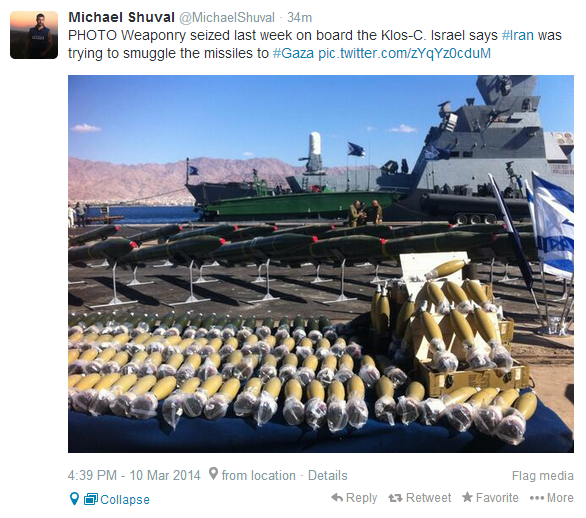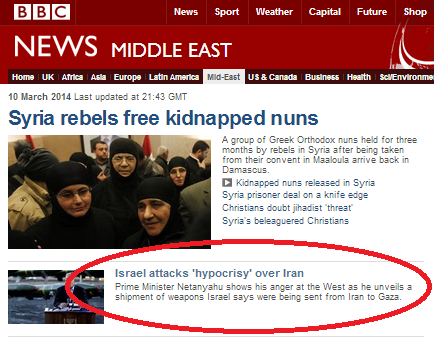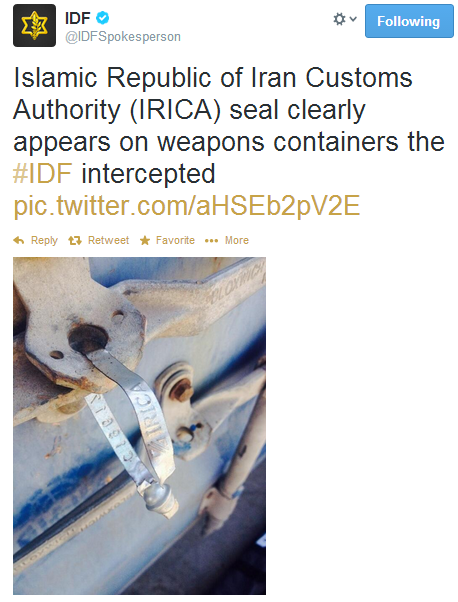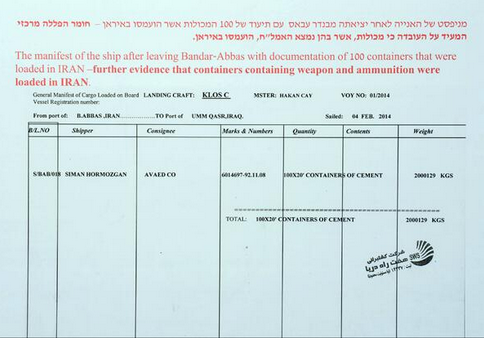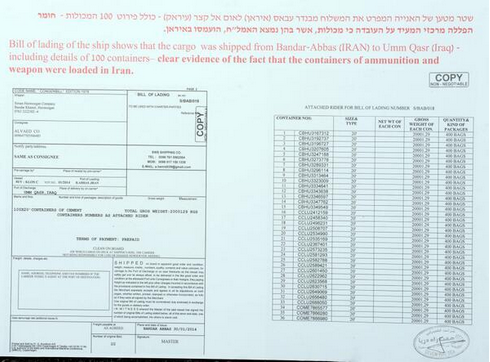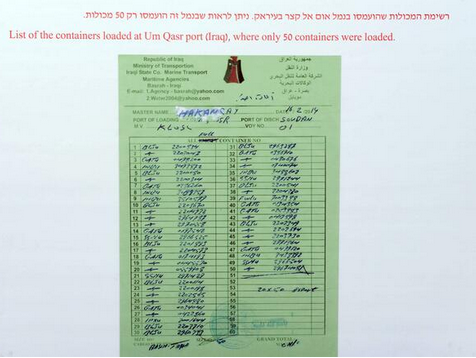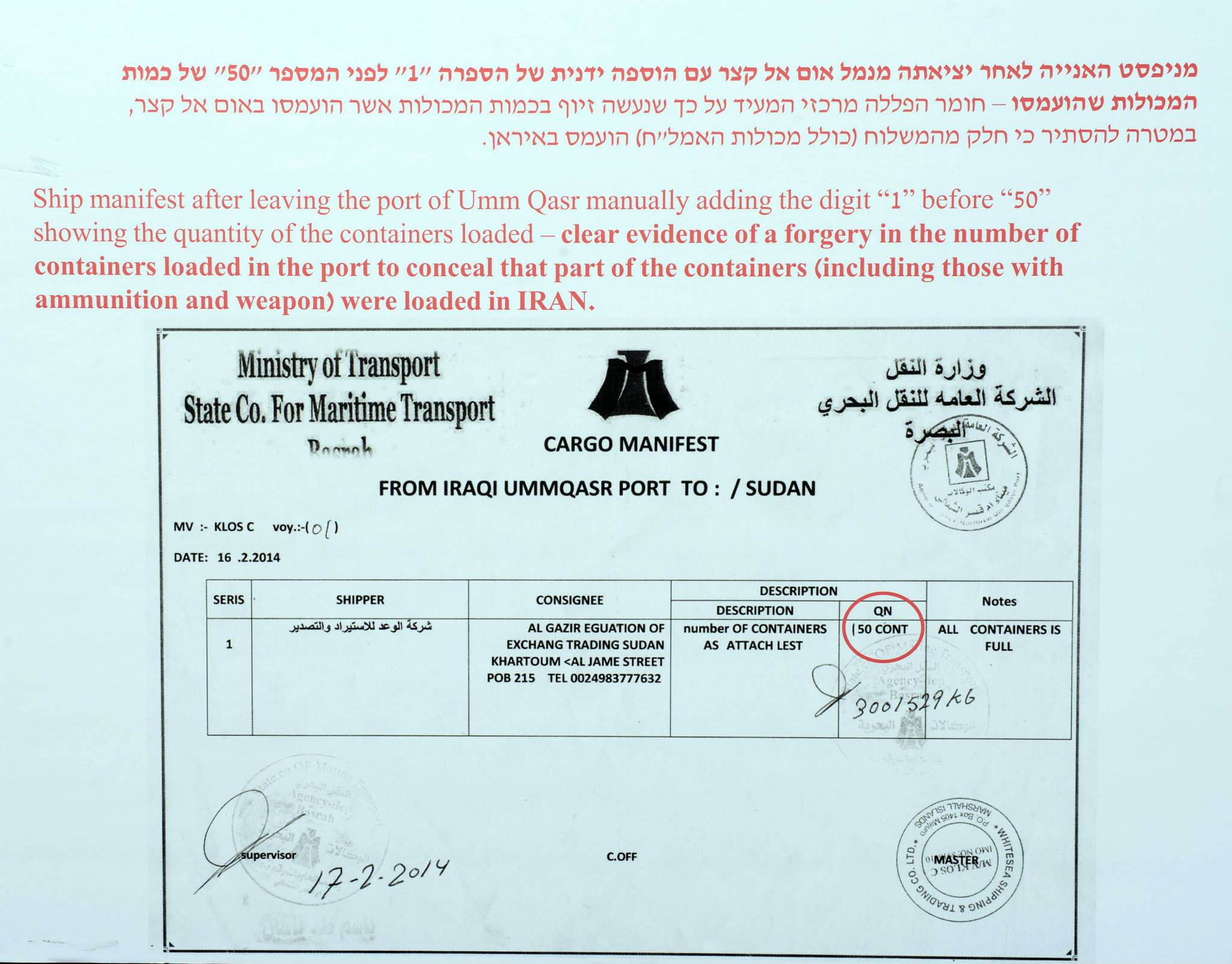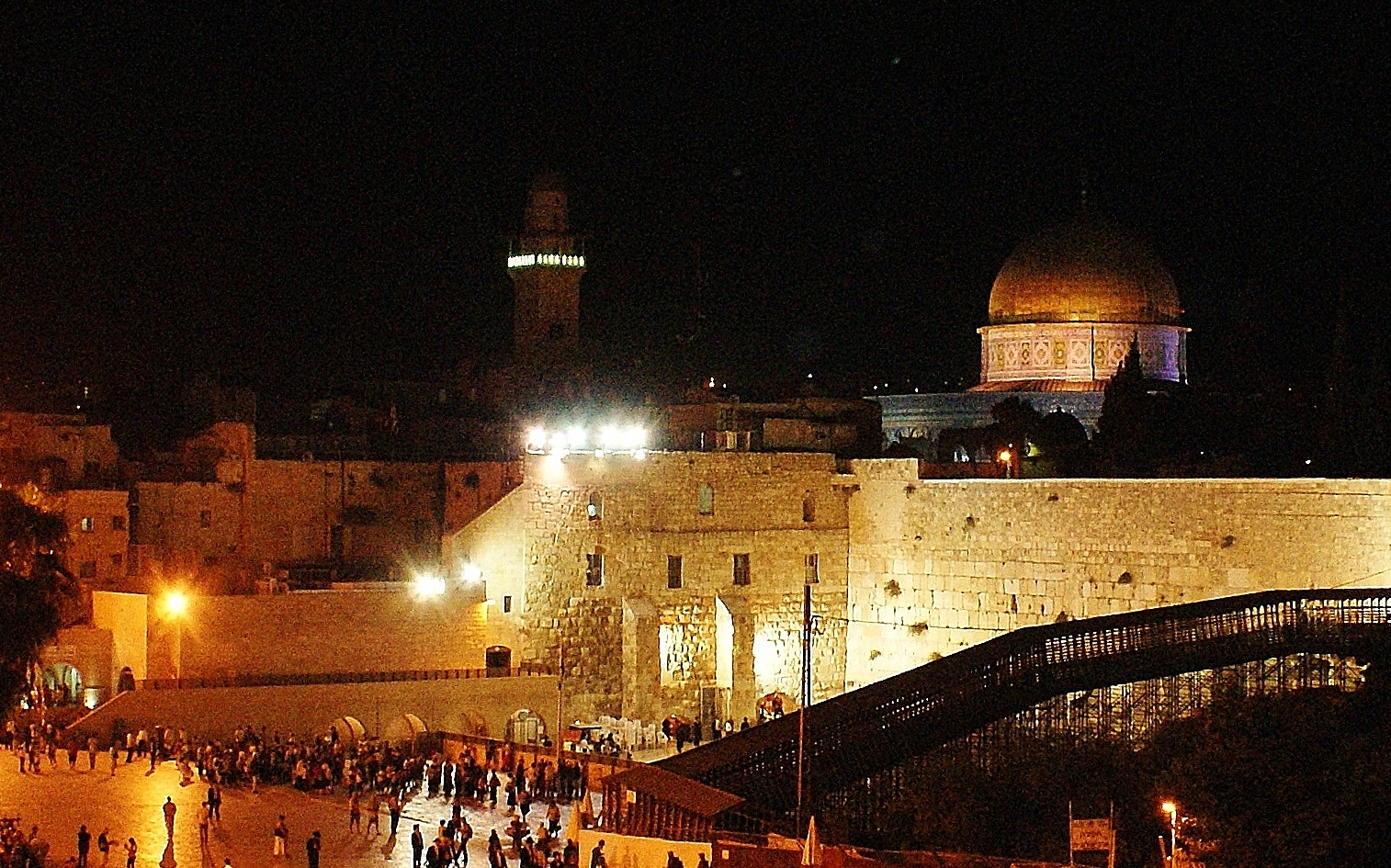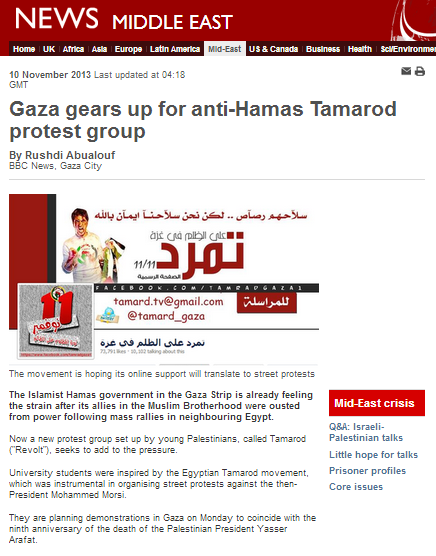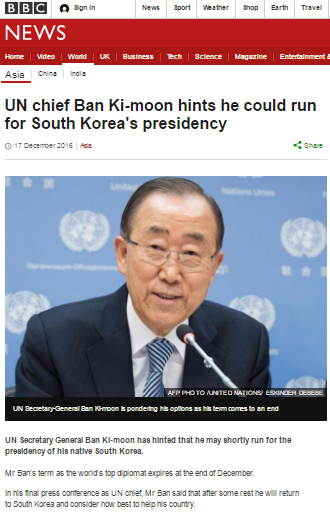On March 10th a BBC producer made his way to Eilat to cover the story of the weapons shipment seized aboard the Klos-C as it was shown to the media the day after its arrival in Israel’s southern port.
The report on that topic which appeared on the Middle East page of the BBC News website later that evening is notable for the fact that instead of fully and accurately informing BBC audiences about the details of the weapons shipment itself, it frames the story in very different terms.
On the Middle East homepage the heading linking to the report read “Israel attacks ‘hypocrisy’ over Iran” and, still using the “Israel says” caveat, the subheading informed readers that:
“Prime Minister Netanyahu shows his anger at the West as he unveils a shipment of weapons Israel says were being sent from Iran to Gaza.” [emphasis added]
The article itself is titled “Israel attacks ‘hypocrisy’ of international community on Iran” and it opens with repetitions of the Iranian and Hamas propaganda previously touted by the BBC in earlier reports. 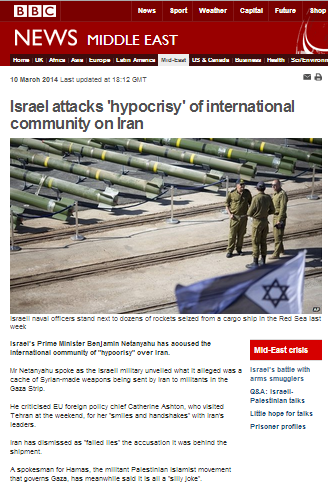
“Israel’s Prime Minister Benjamin Netanyahu has accused the international community of “hypocrisy” over Iran.
Mr Netanyahu spoke as the Israeli military unveiled what it alleged was a cache of Syrian-made weapons being sent by Iran to militants in the Gaza Strip.
He criticised EU foreign policy chief Catherine Ashton, who visited Tehran at the weekend, for her “smiles and handshakes” with Iran’s leaders.
Iran has dismissed as “failed lies” the accusation it was behind the shipment.
A spokesman for Hamas, the militant Palestinian Islamist movement that governs Gaza, has meanwhile said it is all a “silly joke”.” [emphasis added]
The factual information provided to reporters at the event was condensed by the BBC into two short paragraphs, the wording of which is quite remarkable when one considers that at least one BBC employee saw the forty 302 mm missiles, the 181 Iranian-manufactured 120 mm mortar shells and the 400,000 7.62 mm calibre bullets seized aboard the Klos-C with his own eyes.
“Israel’s navy seized a Panamanian-flagged vessel, the Klos-C, in the Red Sea off Sudan last Wednesday, and said it was carrying dozens of M-302 rockets, which have a range of 150km to 200km (93-124 miles).
The weapons had been tracked for several months as they were flown from Damascus to Tehran and then taken to a port in southern Iran, it alleged. From there, it added, they were loaded on to the Klos-C, which sailed to Iraq, where containers of cement were added.”
Significantly, BBC audiences are kept entirely in the dark with regard to the information provided to the press which shows that the weapons shipment did indeed come from Iran. The fact that the shipment included Iranian-produced mortars is disappeared entirely from the BBC’s report. The fact that the weapons were concealed under bags of cement marked as being made in Iran and that the containers carrying the arms had unique seals used by the Iranian customs authorities is also not mentioned.
Reporters were also shown the Klos-C’s paperwork which indicates that 100 numbered containers – including those carrying the weapons – were loaded at the Iranian port of Bandar Abbas (click on the links to see the documents).
The ship then sailed to Umm Qasr in Iraq, where a further 50 containers were loaded.
The ship’s manifest was then altered manually to create the false impression that all 150 containers – including those carrying weapons – had been loaded in Iraq.
The BBC, however, has elected to censor all that information and continues to encourage audiences to view the story in terms of competing Israeli and Iranian claims by means of unquestioned promotion of the latter’s propaganda and liberal use of phrases such as “Israel says” and “Israel alleged”.
The rest of the BBC report is devoted to remarks made by the Israeli prime minister at the press conference, with the curious inclusion of a video showing an interview with the EU’s Catherine Ashton during her recent visit to Iran and a link to a previous BBC report from Iran by Lyse Doucet.
The fact that this BBC report conceals crucial information, and instead seeks to turn readers’ attentions to a version framing the Israeli prime minister’s remarks as the story’s focus, of course actively hinders BBC audiences’ ability to form their own fact-based opinions on the subject of Iran’s policy of arming and financing terrorist organisations in the Middle East and further afield and the implications of that in relation to the ongoing P5+1 negotiations on Iran’s nuclear programme.
Sadly for BBC audiences however, there is nothing novel about that. Since this story first broke, the BBC’s coverage of it has been notable in that it has consistently tried to distract audiences’ attention from the actual issue of Iranian arms shipments to terrorist organisations by reframing the story to focus on the Gaza Strip, on Iranian denials of involvement and now on the Israeli prime minister’s “anger”. By repeatedly reframing the story and by deliberately omitting crucial information it had at its disposal, the BBC has clearly breached its own editorial guidelines on accuracy and impartiality and failed to meet its public purpose of building “a global understanding of international issues”.
Related Articles:
BBC employs smoke and mirrors in report on Iranian weapons smuggling ship
Inaccurate map used to illustrate BBC reports on Klos-C weapons interception
BBC News website self-conscripts to ‘Mini Me’ role on Klos-C weapons interception
More BBC amplification of Iranian propaganda on Klos-C story

